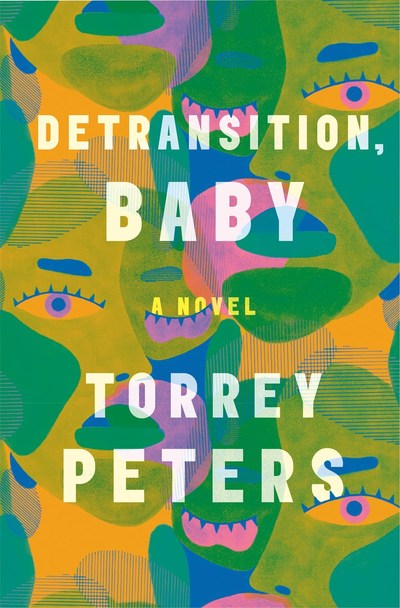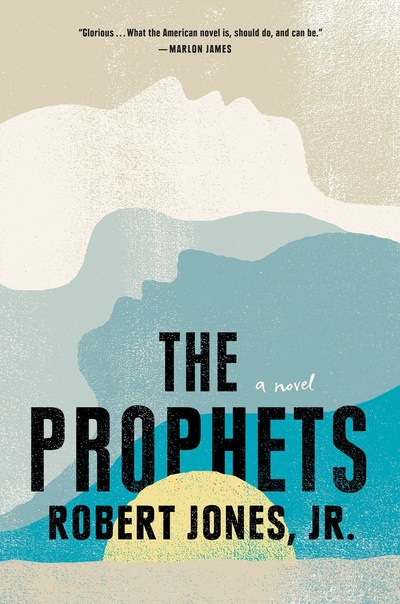Paul Vlitos and Collette Lyons explore the anxiety-inducing allure of Instagram in their debut thriller, People Like Her, written under the pen name Ellery Lloyd.
Congratulations on your first Ellery Lloyd novel! How did you decide on your collective pseudonym? Did you also come up with the idea for the book together?
Collette: We should probably have a better answer for this, but after toying around with various combinations of our own names, we decided to just go with something we liked the sound of. Long first names and short second names sound good we think, and we wanted something unisex that wasn’t just initials—so then it was just googling and playing around with it. We only remembered after settling on Ellery Lloyd that Ellery Queen was the pseudonym for a pair of crime fiction writers in the 1930s!
Your novel takes us into the minds of Emmy, a famous “mumfluencer,” her conflicted husband, Dan, and an unnamed person who wants to destroy Emmy. Did you each take a character? Did you do anything to inhabit those points of view?
Paul: We did start off writing separate characters, but actually by the time it came to the second draft, we both wrote and rewrote all of it—and we can’t now tell who did what.
Collette: There are parts Paul is especially proud of that I am pretty sure I wrote, and vice versa! In terms of research and inhabiting the parts, well, we had a young child, and I personally—and not with the novel in mind, just as a new mum whiling away hours stuck on the sofa under a baby who fed constantly and wouldn’t sleep—fell down an Instagram scroll hole. So I felt quite immersed in that world!
"We wanted to show both sides of the coin, the good and the bad, in People Like Her."
People Like Her certainly captures the joy, pain and occasional grossness of parenthood. Did you look back on your lives together for inspiration?
Collette: The grossness, definitely. There were a lot of exploding nappies in the Ellery Lloyd household! Something a friend said before our daughter was even born really lit a spark in my mind for the novel: If you find it all easy, if you’ve had a good birth and your baby is a dream, doesn’t cry, feeds well, sleeps through—don’t tell other parents, because they will either think you’re lying or hate you. We didn’t have that baby (she didn’t sleep pretty much ever), but I thought that was so interesting, and we definitely riffed on that with Emmy and Dan.
Collette, you’re a journalist and editor, and Paul, you’re a novelist and professor. How did your backgrounds inform your writing? Did either of you get veto power over any aspects?
Paul: We’ve both spent our careers giving people feedback or editing others’ work. It would be a bit churlish to complain about someone else editing our own—especially someone you’ve been married to for a decade. Practically, we work in a Google Doc and so can see when one is tinkering with the other’s sections, and honestly it’s never caused an issue, but we do need a watertight chapter plan from the outset, or it ends up like a game of Consequences!
What is your relationship with social media?
Paul: I don’t use it really, apart from Twitter occasionally.
Collette: I used it far, far too much when our daughter was little, and perhaps that was why I wanted to place it at the heart of our first novel, so that at least I could chalk all those hours up as research! I didn’t use it in an especially healthy way if I’m honest—I never interacted, only scrolled, because I was shy, I think—but I was also conscious that some people do find real community and connection there. We wanted to show both sides of the coin, the good and the bad, in People Like Her.
 Your approach to Emmy is so clever: an Instagram influencer who draws a million-plus followers by making her life seem worse, not better, than it is. Do you think people will reevaluate those they follow on social media, and why they follow them, after reading your book?
Your approach to Emmy is so clever: an Instagram influencer who draws a million-plus followers by making her life seem worse, not better, than it is. Do you think people will reevaluate those they follow on social media, and why they follow them, after reading your book?
Collette: None of us presents an exact replica of our true selves on social media, and anyone who uses Instagram hopefully knows that. So no, I’d be surprised if it made anyone reevaluate who they follow or why. I hope it might make people question why women especially have to belittle their own achievements to seem relatable, and therefore likable, though.
The business acumen of Emmy and her agent, Irene, is impressive, whether dealing with endorsements or reacting to a crisis. Was it important to show the savvy and strategy behind the selfies—and to explore the conflict between what gets followers vs. what’s morally sound?
Collette: They are both smart, ambitious and intelligent, two young women who have thrown themselves into the influencer industry and are really, really good at it. Yes, sometimes they make bad—terrible, even—decisions, but those decisions are based on what they know works. They’d both probably argue that it’s the audience’s fault they’re driven to those lengths to keep their business going. Whether or not you’d agree with them is another matter, of course.
What sorts of patterns did you see as you researched influencers?
Collette: The biggest pattern I saw is that only the people who take it seriously actually succeed and make money. You don’t become an influencer by accident. What I think will be interesting, and we explored this with Emmy, is how this very new career path pans out in the long term. Because the one constant with this sort of technology is that it will change, and that is something even the biggest influencers can’t influence.
ALSO IN BOOKPAGE: Read our review of People Like Her.
How have you been celebrating the release thus far? What’s next for you?
Paul: Well, given the pandemic, we have mainly been celebrating by sitting at home and writing our second book, which is set in the world of celebrity private members’ clubs. We are hugely excited by all the positive reviews of People Like Her, and we can’t wait for it to reach a wider audience. It would, of course, be amazing to see Emmy and Dan on screen. We have offered our services to play them but weirdly haven’t heard anything back. . .
Author photo by Annick Wolfers.








 Your approach to Emmy is so clever: an Instagram influencer who draws a million-plus followers by making her life seem worse, not better, than it is. Do you think people will reevaluate those they follow on social media, and why they follow them, after reading your book?
Your approach to Emmy is so clever: an Instagram influencer who draws a million-plus followers by making her life seem worse, not better, than it is. Do you think people will reevaluate those they follow on social media, and why they follow them, after reading your book?





